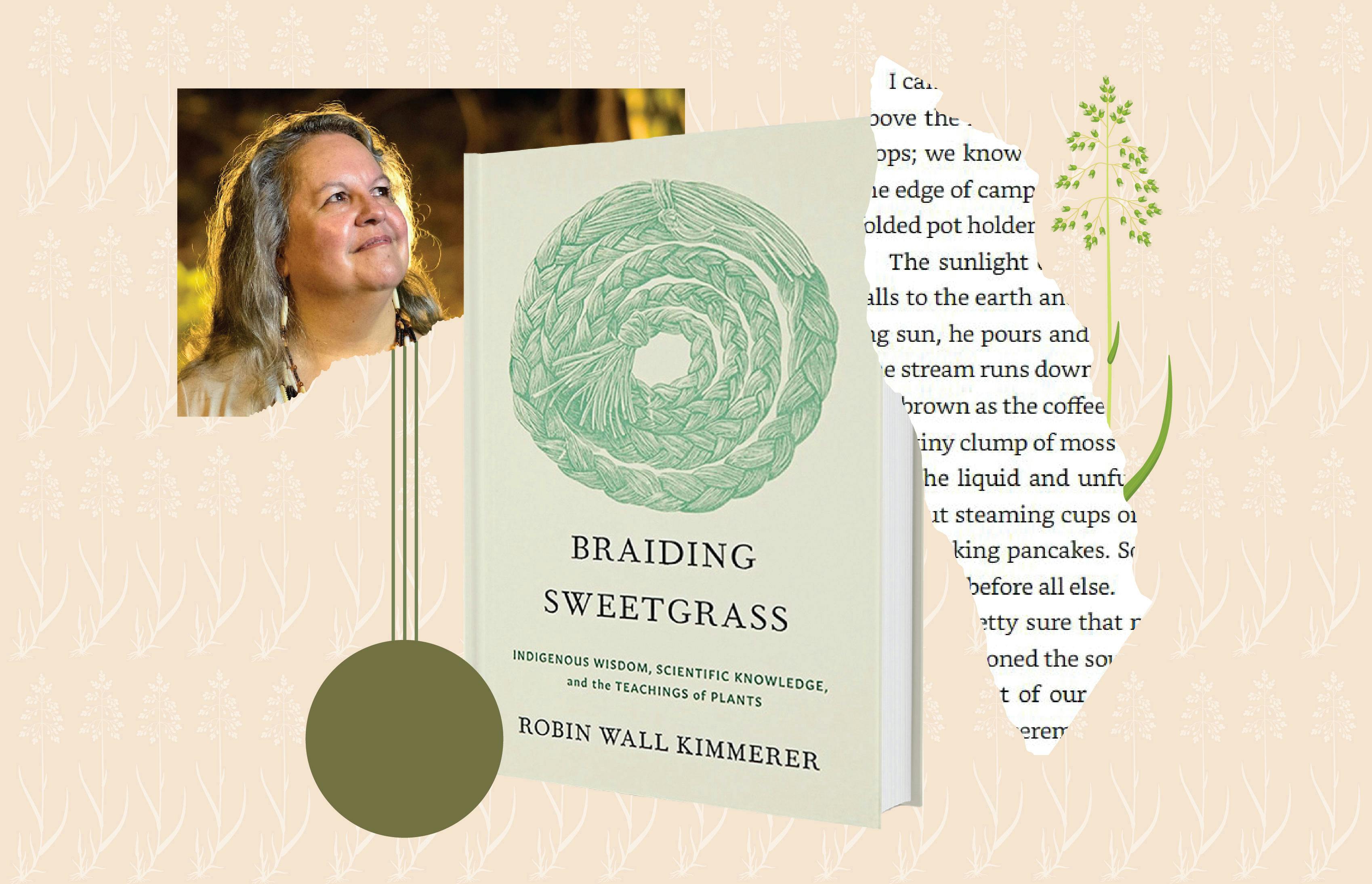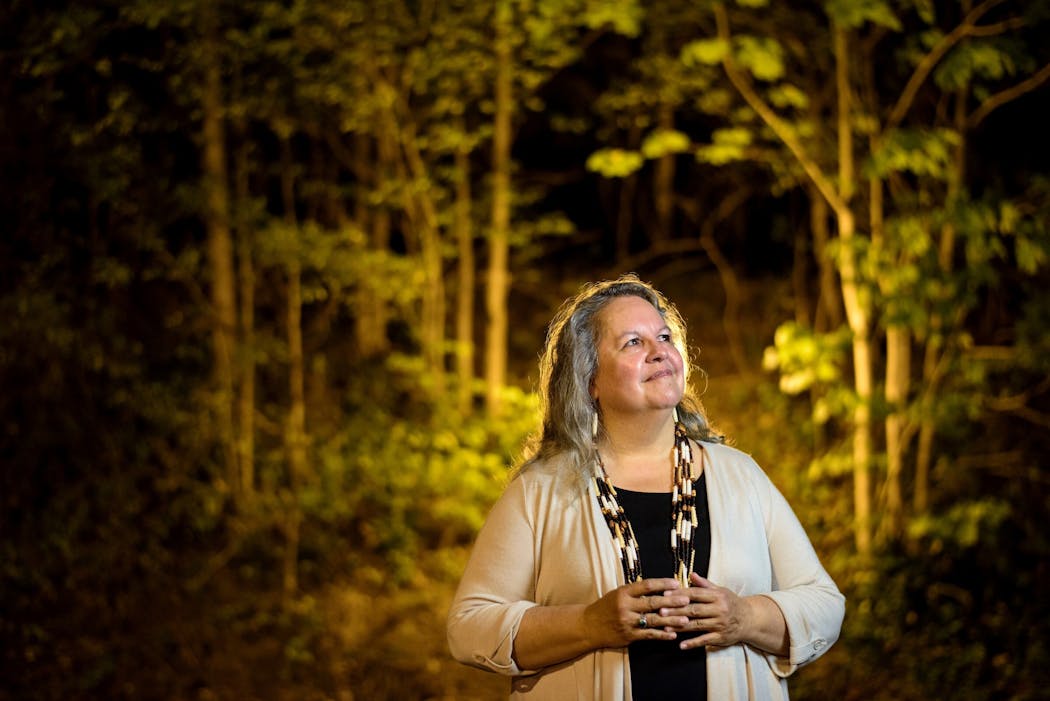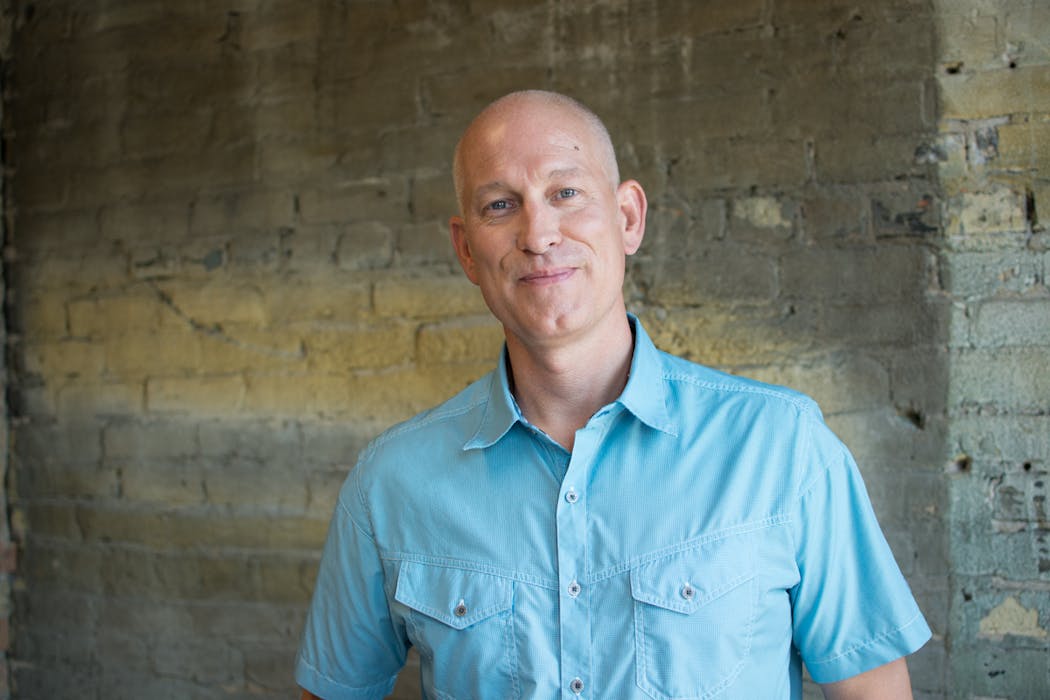When "Braiding Sweetgrass" arrived on the bestseller list in February 2020, it surprised the literary world. The book hadn't followed the usual path: It had come out more than six years earlier. It had nabbed no New York Times review. It had enjoyed no big-budget marketing bonanza.
Instead, Robin Wall Kimmerer's essay collection had been passed from hand to hand, from friend to friend. Which, in a bit of poetry, is how sweetgrass the plant is disseminated — not by seed, but by hand-to-hand transplant.
But how, exactly, did the book reach so many hands, so many friends?
That story is rooted in Minnesota. It began when Kimmerer, a botanist and member of the Citizen Potawatomi Nation, sent a manuscript to a small Minneapolis publisher, the nonprofit Milkweed Editions. It picked up momentum when a local podcast, "On Being," broadcast Kimmerer's wise, gentle voice across the country.
By the time it appeared on the paperback nonfiction New York Times Best Seller list, where it lives more than three years later, the book had become beloved. An invitation to enter a more respectful, reciprocal relationship with the world, "Braiding Sweetgrass" shifted the national conversation around the environment and caused thousands of readers to look at a strawberry and see a heart. To see a gift.
It changed that local publisher, too.
"I can't think of another book publishing house that has been more deeply impacted by a book or by an author," said Daniel Slager, publisher and CEO of Milkweed Editions.
Here, 10 years and 2 million copies after the book's publication, he and others tell that story.
Conversations have been edited for length and clarity.
Robin Wall Kimmerer: I sent the book off to Milkweed back in the day when you didn't need an agent. Like a milkweed seed on the breeze.
Some of my favorite authors are on the Milkweed bookshelf — Robert Pyle and Alison Deming and Kathleen Dean Moore. And I thought, maybe this is the right home, because this feels like a book that wants to stand page to page with those good folks.
Patrick Thomas, former Milkweed editor: We had a room at Milkweed that was floor-to-ceiling manila envelopes. We used to have avalanches when they would fall over on people. In 2010, I came across an envelope from Robin and immediately grabbed it.
I had attended an environmental literature conference in Eugene, Ore. Robin's book "Gathering Moss" was out, and I had listened to her speak. I talked to her afterwards and told her how beautiful the book was.
Kimmerer: My hope was that "Braiding Sweetgrass" could bring an awareness of the existence and deep significance of Indigenous ways of knowing into environmental discourse that had been for so long dominated by the Western worldview.
The land is not just a source of commodities and natural resources — it is, in fact, a gift to us. And when we see the Earth as a gift, it triggers our wanting to give back. Could I write in such a way that people could feel the notion alive in them that the Earth is a gift? And if you can feel that, what does that look like to give your own gift back in reciprocity?
Thomas: Reading her initial submission, you could tell you were in the hands of a natural storyteller. The vast majority of the work Robin, Daniel and I did together was to shape the arc of the book. To build a cadence that would help the reader come to understand her worldview and her background, then growing the arc toward some of the tougher stuff.
Kimmerer: One of the joys of working with Milkweed was the encouragement to be even bolder. For example, one of the themes that emerged was the notion of plants as persons, plants as teachers.
And I was using the language of personhood: "who" rather than "it." That would draw the pen of most copy editors. Like, no, you cannot personify plants. But Patrick encouraged me to do it even more strongly — so that it was a much clearer challenge to the way that we typically think about plants as objects rather than as subjects.
Thomas: When you get to the moment when you want to get a book blurbed, which is a verb I hate, you ask, "Hey, do you know anyone who can be an advocate?" And Robin was like, "Well, I've interacted with Elizabeth Gilbert." And I was like, "Wait, what? Like, the 'Eat Pray Love' lady?" And so we had this quote from this titanic bestseller. You don't expect someone to show up with that kind of connection. So that was definitely helpful.
Diane Wilson, author of "The Seed Keeper": I first met Robin way back when the book first came out, in 2013. A mutual friend, Heid Erdrich, introduced us. We all sing with hand drum, so we sang together, played music together. I got to spend time with Robin before she became this internationally known author. In every interaction I've had with her — whether it's been onstage or backstage or in my living room — Robin has been kind, gentle, very smart, very generous. "Braiding Sweetgrass" emerged the way it did because Robin is an exceptional human being.
Daniel Slager: It found its audience relatively slowly, as far as bestsellers go. And it was not a publicity-driven success. The book was never reviewed in the New York Times, never reviewed by the Washington Post.
Each of the first eight years, its sales doubled, which is completely unheard of.
Kimmerer: From the very start, I was getting tons of correspondence from readers. That was my data on how the book was making its way in the world. That gave me a sense of a kind of acceleration, because they would say, I felt alone, then I read your words, and I realized there is at least one other person who feels this way about the living world. I know there are others: I think it might be my niece. I think it might be my teacher.
And so the book was being passed hand to hand, almost as a kind of a recognition of shared values.
Thomas: I was leaving Milkweed on a Saturday, pulling out of the parking lot, and like your typical literary editor, National Public Radio was on. And I thought, man, this voice sounds so familiar. It was her "On Being" interview. Listening to it, I thought, this sounds really, really good. And that was the moment when the momentum really started to build.
Kimmerer: [From the "On Being" episode that aired in 2016.] I can't think of a single scientific study in the last few decades that has demonstrated that plants or animals are dumber than we think. It's always the opposite, right? What we're revealing is the fact that they have a capacity to learn, to have memory. And we're at the edge of a wonderful revolution in really understanding the sentience of other beings.
Thomas: Every year, there's a gathering of independent booksellers called Winter Institute. At the booksellers' luncheon, you got 10 minutes at each table. So most people would pitch their upcoming books. We did, too. But every year, we would also bring a copy of "Braiding Sweetgrass," and we would tell the story of what it meant to us and what it meant to readers. And every year, there would be one bookseller at the table who would say, "Oh, I love this book. I sell the heck out of this book." And everyone else would lean in.
I think they have something like 2,000 different bookstores at this event. And once you get that community behind a book, watch out. They sell books like nobody else can.
Peter Makin, owner of Brilliant Books in Traverse City, Mich.: Our store manager Jack was [recommending] it. Up here in northwest Michigan, "Braiding Sweetgrass" resonates because people are trying to get close to the land and back to nature.
Once a bookseller gets hold of a book and really likes it, that can really make a huge, huge difference. I think that there were many Jacks in many bookstores.
Wilson: This is the book for our times. As we're grappling with enormous issues around climate change, Robin's book gives us a pathway back to relationship. And to me, that's fundamental to making the changes that we need to make.
Kimmerer: I was invited to speak at the United Nations. Like, what? Is this a prank phone call? That was a real landmark moment for me to understand the impact of these ideas and that the world was listening. I don't know that I've ever worked harder on a talk than that one.
Slager: Our values, the way we operate in the world, the way we treat staff, what we're trying to accomplish in the world — it is all shaped by Robin's messages. Our mission statement changed after "Braiding Sweetgrass." Think of the changes that follow from that! Everything from where we print our books. Curatorial decisions: Do we publish this book or not?
Our staff has doubled. We publish more than twice as many books as we did. And our sales have more than quintupled.
To be really pragmatic about this: In the past, if we published a book like Elizabeth Rush's "Rising," which was a finalist for the Pulitzer Prize, that would be the last book we published by that author. But now, we're better resourced and better capitalized. We can grow with authors.
Nadine Teisberg of Birchbark Books: It was already a popular book for us, but then sales skyrocketed over the pandemic. Folks would call and ask us what we were reading or what they could get that could give them tranquility and hope in that dark, confusing, lonely time. We so frequently suggested "Braiding Sweetgrass" because it felt — and still feels — like a book for everyone.
Kimmerer: I have boxes of letters and cards. And artwork and poetry and photographs. People have heard this call to reciprocity and taken the time to send something beautiful in return. At first, I had the capacity to answer them. But it rather quickly outstripped my ability to do that. I will admit to feeling a lot of regret about that. I can't, I simply can't. But that doesn't mean I'm not grateful for every one of them.
Slager: I was at a writers' conference this past May where Robin was the keynote speaker. It was held in Homer, Alaska, a town of about 4,000 people, at the public high school, which was packed with maybe 1,200 people, a large percentage Indigenous. She spoke for about an hour. At the conclusion, there was a resounding standing ovation. On my feet, clapping, I looked around, and at least 15 people deep, all around me in a circle, 90% of the people were weeping.
I didn't understand until that moment the impact of the book.
It was just so, so incredible, so energizing, and so moving. And I'm so grateful. I feel humbled to have been in the right place at the right time with the right people where some kind of incredible magic happened.



